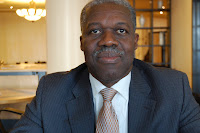 Small-scale producers, local production and consumption circuits and recovering traditional crops have a major part to play in reducing hunger, FAO Director-General José Graziano da Silva told professors and students at the University of Gastronomic Sciences recently, also noting the many possibilities of cooperation between FAO and the university to fulfil the vision of a hunger-free and sustainable world.
Small-scale producers, local production and consumption circuits and recovering traditional crops have a major part to play in reducing hunger, FAO Director-General José Graziano da Silva told professors and students at the University of Gastronomic Sciences recently, also noting the many possibilities of cooperation between FAO and the university to fulfil the vision of a hunger-free and sustainable world. He said that the Green Revolution of the 1960s had increased per capita availability of food by over 40 percent, but at the cost of a loss of food diversity because of a focus on a few crops and significant impact on the environment from intensive use of chemical inputs.






